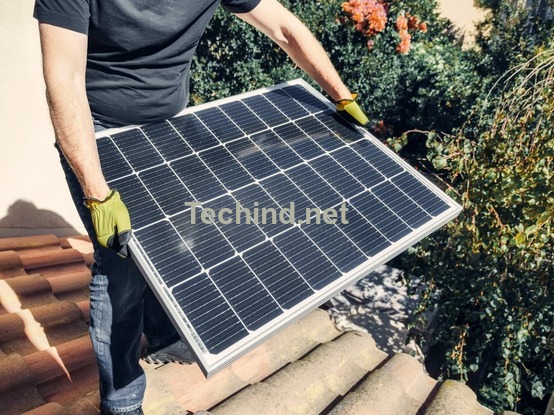
Bendy solar panels have been a topic of discussion for a while now. Some people believe that they are just as good as regular solar panels, while others think that they are not worth the investment.
On the other hand, regular solar panels are still the preferred choice for many people. They have a longer lifespan than bendy solar panels and are more efficient at converting sunlight into electricity. Regular solar panels can also generate more electricity than bendy solar panels, which makes them a better option for larger households.
Both bendy solar panels and regular solar panels have their advantages and disadvantages. It ultimately comes down to personal preference and the specific needs of your household. If you are on a budget and need a solution that is easy to install and transport, then bendy solar panels might be the way to go. However, if you are looking for a long-term investment and want to generate more electricity, then regular solar panels are the better option.
Bendy Solar Panels vs Regular Panels
Solar panels are becoming increasingly popular as a means of generating clean energy. They are an excellent alternative to traditional energy sources and provide a more sustainable way of producing electricity. With the growing popularity of solar panels, there are now more options available than ever before. One of the options that are gaining popularity is bendy solar panels. In this blog post, we will discuss the differences between bendy solar panels and regular panels and help you decide which one is best for your needs.

Bendy Solar Panels
Bendy solar panels are a new type of solar panel that is made from a thin, flexible film. They are lightweight and can be easily mounted on curved surfaces. They are designed to be more durable than traditional solar panels, and the flexible design allows them to withstand harsh weather conditions. Bendy solar panels are also more efficient than traditional solar panels and can produce more energy per square foot. This makes them an excellent choice for people who have limited space for solar panels.
Regular Panels
Regular solar panels are made from silicon and are rigid. They are the most common type of solar panel and are widely used in residential and commercial applications. They are durable and can withstand harsh weather conditions. However, they are not as flexible as bendy solar panels and are not suitable for curved surfaces. Regular solar panels are also less efficient than bendy solar panels and produce less energy per square foot.
Which one is better?
The answer to this question depends on your needs. If you have limited space or need to mount solar panels on curved surfaces, then bendy solar panels are the better option. They are also more efficient and durable than regular solar panels. However, if you have a large space and need to mount solar panels on a flat surface, then regular solar panels are a better option. They are also less expensive than bendy solar panels and have a longer lifespan.
Pros and Cons of Bendy Solar Panels vs Regular Panels
Solar panels are a great way to harness the power of the sun and generate clean energy. However, there are different types of solar panels available in the market. In this document, we will discuss the pros and cons of bendy solar panels and regular panels.
Regular Panels
Regular solar panels are made of crystalline silicon and are rigid in nature. They are typically installed on rooftops or mounted on the ground. Here are some of the pros and cons of regular panels:
Pros
- High Efficiency: Regular solar panels have a high efficiency rate, typically above 20%. This means they can produce more energy compared to bendy solar panels.
- Longevity: Regular solar panels have a lifespan of around 25-30 years, making them a long-term investment.
- Low Maintenance: Regular solar panels require very little maintenance once installed.
- Reliable Technology: Regular solar panels have been in use for many years and have undergone extensive testing and improvements.
Cons
- Installation: Regular solar panels are heavy and require a sturdy roof or mounting structure to support them.
- Limited Flexibility: Regular solar panels are rigid and cannot be bent to fit curved surfaces.
- Aesthetics: Regular solar panels are not very aesthetically pleasing and may not blend well with the overall design of a building.
Bendy Solar Panels
Bendy solar panels, also known as flexible solar panels, are made of thin film photovoltaic cells and are flexible in nature. They can be installed on curved surfaces and are typically used in applications where regular panels are not suitable. Here are some of the pros and cons of bendy solar panels:
Pros
- Flexibility: Bendy solar panels can be bent and shaped to fit curved surfaces.
- Lightweight: Bendy solar panels are lightweight and can be installed in places where regular panels may be too heavy.
- Aesthetics: Bendy solar panels are aesthetically pleasing and can blend well with the overall design of a building.
Cons
- Low Efficiency: Bendy solar panels have a lower efficiency rate compared to regular panels, typically around 10-15%.
- Shorter Lifespan: Bendy solar panels have a shorter lifespan compared to regular panels, typically around 10-15 years.
- Fragile: Bendy solar panels are more fragile compared to regular panels and can be easily damaged.
The both regular and bendy solar panels have their own pros and cons. When choosing between the two, it is important to consider the specific needs of the application and the type of surface on which the panels will be installed.
Conclusion:
In conclusion, both bendy solar panels and regular solar panels have their advantages and disadvantages. The best option for you depends on your specific needs. If you have limited space or need to mount solar panels on curved surfaces, then bendy solar panels are the better option. However, if you have a large space and need to mount solar panels on a flat surface, then regular solar panels are a better option. Ultimately, both types of solar panels provide a sustainable way of generating electricity and are an excellent alternative to traditional energy sources.
![Error [pii_email_4dd09cddea0cd66b5592] with Outlook- Solutions that Will Work](https://techind.net/wp-content/uploads/2024/01/Error-pii_email_4dd09cddea0cd66b5592-with-Outlook-Solutions-that-Will-Work.png)
